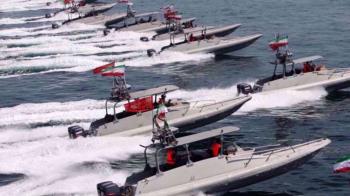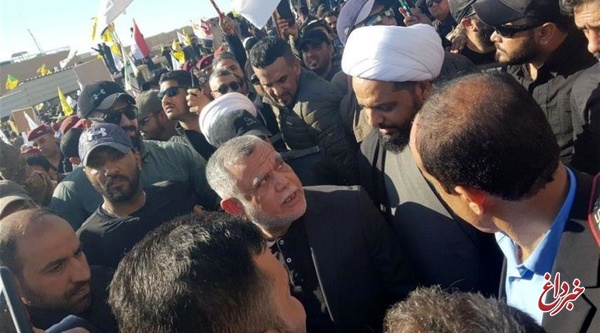Alwaght- Hadi al-Ameri, head of powerful Fatah (Conquest) Alliance in Iraq’s parliament, said the will expel American forces from the Iraqi territory, following the assassination of Popular Mobilization Forces (PMF) second-in-command, Abu Mahdi al-Muhandis, and Lieutenant General Qassem Soleimani, the commander of the Quds Force of Iran’s Islamic Revolution Guards Corps (IRGC).
“We offer our condolences to the adherents of Popular Mobilization Forces and all Iraqis over the martyrdom of Abu Mahdi al-Muhandis, General Soleimani and a number of young valiant men. This is the path of martyrdom, and we hereby declare that we will continue to tread it. We have no reservations whatsoever in this regard,” Hadi al-Ameri told reporters as he participated in the funeral ceremony for the fallen victims in the Iraqi capital Baghdad on Saturday.
He added, “We will defeat Americans and drive them out, as we did earlier in the face of ISIS. We will expel Americans right before Iraqis’ eyes as they will be frustrated and humiliated.”
“We will press ahead with this struggle. We don't have any option but to fully restore Iraq’s sovereignty,” Ameri, who is also the secretary general of the Badr Organization, pointed out.
On late Saturday, Al Mayadeen reported that the two major factions of the Iraqi Parliament - Fatah Alliance led by Hadi al-Ameri and Sairoon led by Muqtada al-Sadr - have reached consensus on passing legislation that ends the US military presence in the Arab country.
The Parliament is to hold an emergency meeting on Sunday to discuss the expulsion of American forces.
Back on August 27 last year, the Fatah Alliance called for the withdrawal of US troops from Iraq, following a series of airstrikes targeting PMF forces in the country that have been blamed on Israel.
The parliamentary bloc said it held the United States fully responsible for the Israeli aggression, “which we consider to be a declaration of war on Iraq and its people.”
The US, backed by the United Kingdom, invaded Iraq in 2003 claiming that the former regime of Saddam Hussein possessed weapons of mass destruction.
No such weapons, however, were ever found, and the invaders withdrew from Iraq, after nearly nine years of a military campaign that cost tens of thousands of Iraqi lives.
Leading a new coalition of its allies, the US returned to Iraq in 2014, when the Takfiri terror group of Daesh unleashed a campaign of destruction in the Arab country. Widespread reports, however, said the Washington-led operations largely spared the terrorists and led, instead, to civilian deaths and inflicted damage on Iraqi infrastructure.
Iraq’s army troops, backed by volunteer Popular Mobilization Forces, managed to liberate all ISIS-held areas thanks to military advisory assistance from neighboring Iran.
Baghdad declared the end of the anti-ISIS campaign in late 2017.



























